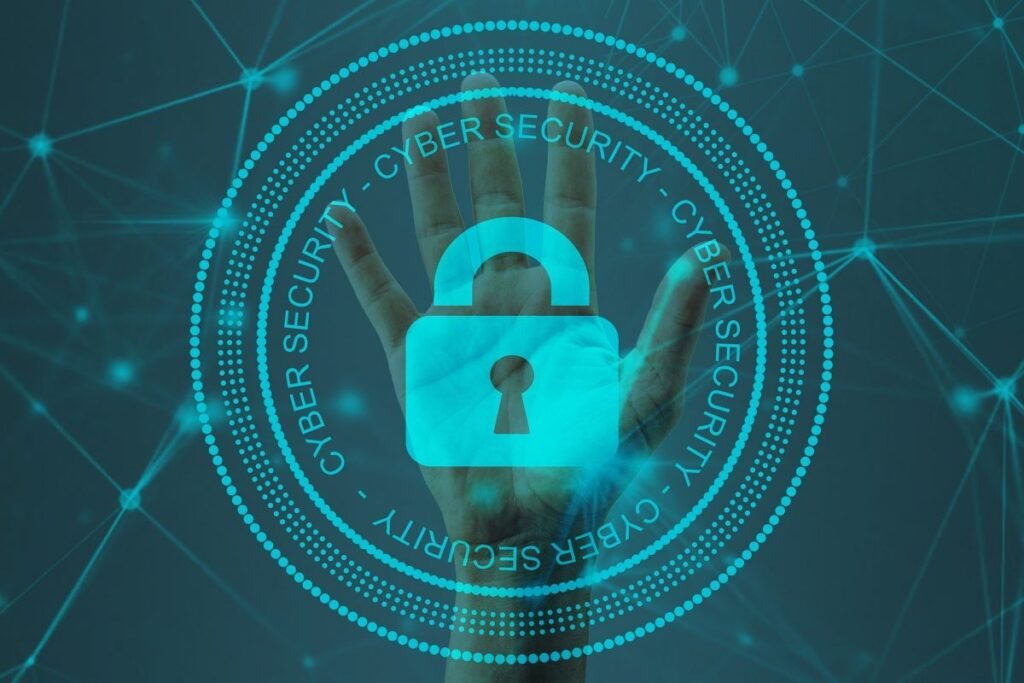
What is cybersecurity ?
what is cybersecurity
Cybersecurity refers to the practice of protecting computer systems, networks, software, and data from potential threats, attacks, and unauthorized access. It involves a range of strategies, technologies, processes, and practices designed to safeguard digital information and ensure the confidentiality, integrity, and availability of both personal and sensitive data.
In the modern digital landscape, where almost every aspect of our lives is connected to the internet and technology, cybersecurity has become a crucial concern. Cyber threats can come in various forms, including:
- Malware: Malicious software such as viruses, worms, Trojans, ransomware, and spyware that can compromise the security of a system or network.
- Phishing: Deceptive techniques used to trick individuals into revealing sensitive information, often through fake emails or websites that appear legitimate.
- Data Breaches: Unauthorized access to sensitive information, often resulting in the exposure of personal data, financial information, or intellectual property.
- Denial of Service (DoS) Attacks: Attempts to overwhelm a network or system with excessive traffic, rendering it unavailable to legitimate users.
- Hacking: Unauthorized access to computer systems or networks, often to steal or manipulate data.
- Social Engineering: Manipulating individuals into divulging confidential information through psychological manipulation.
To counter these threats and ensure cybersecurity, various measures are taken, including:
- Firewalls: Software or hardware barriers that control incoming and outgoing network traffic based on predetermined security rules.
- Antivirus Software: Programs designed to detect, prevent, and remove malicious software from computer systems.
- Encryption: The process of converting data into a code to prevent unauthorized access, ensuring that only authorized parties with the decryption key can access the information.
- Multi-factor Authentication (MFA): Requiring users to provide more than one form of identification to access a system, adding an extra layer of security.
- Patch Management: Keeping software, operating systems, and applications up to date with the latest security patches to address vulnerabilities.
- Security Audits and Penetration Testing: Regular assessments of systems to identify vulnerabilities and weaknesses, followed by simulated attacks to test the effectiveness of security measures.
- Employee Training: Educating employees about cybersecurity best practices to minimize risks associated with human error.
- Intrusion Detection Systems (IDS) and Intrusion Prevention Systems (IPS): Technologies that monitor networks for suspicious activities and respond to potential threats.
Cybersecurity is an ongoing process that evolves with the ever-changing threat landscape. As technology advances, so do the methods employed by cybercriminals. Therefore, individuals, businesses, and organizations must remain vigilant and proactive in their approach to cybersecurity to protect their digital assets and maintain the confidentiality and integrity of their data.
Necessary skills for cybersecurity
Cybersecurity is a rapidly evolving field that requires a diverse set of skills to effectively protect digital systems and networks from threats. Here are some key skills that are highly valuable for a career in cybersecurity:
- Technical Proficiency:
- Network Security: Understanding of network protocols, architecture, and the ability to configure and manage firewalls, routers, and intrusion detection/prevention systems.
- Operating Systems: Proficiency in various operating systems, including Windows, Linux, and macOS, including knowledge of their security features and vulnerabilities.
- Coding and Scripting: Proficiency in programming languages like Python, JavaScript, and PowerShell for tasks such as automating security processes and developing security tools.
- Security Fundamentals:
- Security Concepts: Strong understanding of security principles, cryptography, authentication, authorization, and access control.
- Threats and Attacks: In-depth knowledge of various cyber threats, attack vectors, and malware types to anticipate and defend against them.
- Cybersecurity Tools:
- Firewalls and Intrusion Detection Systems (IDS/IPS): Familiarity with tools and software used to monitor and protect networks from unauthorized access and attacks.
- Vulnerability Assessment Tools: Ability to use tools that identify weaknesses in systems and applications.
- Penetration Testing Tools: Knowledge of tools used to simulate attacks on systems and find vulnerabilities before malicious actors do.
- Incident Response:
- Incident Handling: Ability to respond to and manage security incidents, including isolating affected systems, recovering data, and implementing preventive measures.
- Forensics: Understanding of digital forensics techniques to investigate security breaches and gather evidence.
- Cybersecurity Standards and Regulations:
- Compliance: Knowledge of relevant industry standards (e.g., NIST, ISO 27001) and regulations (e.g., GDPR, HIPAA) to ensure systems and practices adhere to legal requirements.
- Risk Management:
- Risk Assessment: Skill in evaluating and prioritizing potential risks to systems and networks and recommending mitigation strategies.
- Communication and Collaboration:
- Communication Skills: Ability to convey technical information to non-technical stakeholders, write clear documentation, and explain security risks and recommendations.
- Collaboration: Working effectively with cross-functional teams, including IT, developers, and management, to implement security measures.
- Continuous Learning:
- Adaptability: Cybersecurity is ever-changing; the ability to stay updated on the latest threats, vulnerabilities, and security technologies is crucial.
- Certifications and Training: Pursuing relevant certifications like CompTIA Security+, Certified Information Systems Security Professional (CISSP), Certified Ethical Hacker (CEH), and more can enhance your skills and credibility.
- Ethical Hacking and Penetration Testing:
- White Hat Skills: Understanding of ethical hacking techniques to identify vulnerabilities and weaknesses in systems and applications.
- Critical Thinking and Problem-Solving:
- Analytical Skills: Ability to analyze complex situations, identify patterns, and develop effective solutions to security challenges.
Remember that cybersecurity is a multidisciplinary field, and having a combination of technical skills, soft skills, and a strong ethical foundation is essential for a successful and impactful career in this domain.
also readWORK FROM HOME JOBS FOR WOMEN
How to become cybersecurity engineer
Becoming a cybersecurity engineer requires a combination of education, skills development, and practical experience. Here’s a step-by-step guide on how to pursue a career as a cybersecurity engineer:
1. Education:
- Bachelor’s Degree: While not always mandatory, a bachelor’s degree in computer science, information technology, cybersecurity, or a related field is highly recommended. It provides a solid foundation in technical concepts and principles.
2. Gain Technical Skills:
- Networking: Learn about network protocols, architecture, firewalls, routers, and intrusion detection/prevention systems.
- Operating Systems: Develop proficiency in various operating systems, including Windows, Linux, and macOS.
- Programming and Scripting: Learn programming languages like Python, JavaScript, and PowerShell to automate tasks and develop security tools.
- Security Tools: Familiarize yourself with cybersecurity tools such as firewalls, IDS/IPS, vulnerability scanners, and penetration testing tools.
3. Build Security Knowledge:
- Security Concepts: Gain a strong understanding of security principles, cryptography, authentication, access control, and security policies.
- Threats and Attacks: Study various cyber threats, attack vectors, and malware types to better defend against them.
4. Obtain Certifications:
- CompTIA Security+: A foundational certification covering essential cybersecurity skills.
- Certified Information Systems Security Professional (CISSP): A highly regarded certification demonstrating expertise in information security.
- Certified Ethical Hacker (CEH): Focuses on ethical hacking techniques and penetration testing.
- Certified Information Security Manager (CISM): Focuses on information risk management and governance.
5. Gain Practical Experience:
- Internships: Seek internships or entry-level positions in IT or cybersecurity departments to gain hands-on experience.
- Capture the Flag (CTF) Challenges: Participate in online CTF challenges to practice your skills in a controlled environment.
- Personal Projects: Work on personal cybersecurity projects to showcase your skills and create a portfolio.
6. Specialize:
- Consider specializing in a specific area of cybersecurity, such as network security, application security, cloud security, or incident response.
7. Stay Updated:
- Cybersecurity is constantly evolving. Stay updated on the latest threats, vulnerabilities, and security technologies through research, courses, and industry publications.
8. Soft Skills:
- Develop strong communication and problem-solving skills, as cybersecurity engineers often need to communicate complex technical concepts to non-technical stakeholders and collaborate with cross-functional teams.
9. Networking:
- Attend cybersecurity conferences, workshops, and meetups to network with professionals in the field and learn from their experiences.
10. Apply for Positions:
- Look for cybersecurity engineer job openings in companies, government agencies, and organizations focused on cybersecurity.
Remember that cybersecurity is a dynamic field, and a passion for learning and adapting to new challenges is essential. It’s also important to maintain a strong ethical foundation, as cybersecurity professionals are entrusted with protecting sensitive information and systems. As you gain experience and expertise, you’ll be well on your way to a rewarding career as a cybersecurity engineer.
readGovernment jobs |how to prepare for it |after 12th | graduation |tips for written test | interview
How to become cybersecurity after 12th
Becoming a cybersecurity professional after completing your 12th grade requires a strategic approach to education, skill development, and practical experience. Here’s a step-by-step guide to help you get started:
1. Choose a Relevant Educational Path:
- Pursue a bachelor’s degree in computer science, information technology, cybersecurity, or a related field. This will provide you with a strong foundation in technology and set the stage for more advanced cybersecurity studies.
2. Self-Study and Skill Development:
- Begin learning about basic computer concepts, programming, and networking through online resources, tutorials, and courses.
- Gain proficiency in operating systems like Windows and Linux.
- Start learning programming languages like Python, which is widely used in cybersecurity for scripting and automation.
3. Develop a Strong Understanding of Cybersecurity:
- Study the fundamentals of cybersecurity, including encryption, authentication, access control, and security policies.
- Learn about common cyber threats, attack vectors, and malware types.
4. Obtain Certifications:
- While pursuing a degree, consider starting with foundational certifications:
- CompTIA Security+: A good entry-level certification covering essential security concepts.
- CompTIA Network+: Helps you understand networking fundamentals.
- As you progress, consider more advanced certifications like Certified Information Systems Security Professional (CISSP), Certified Ethical Hacker (CEH), and Certified Information Security Manager (CISM).
5. Hands-On Experience:
- Set up a home lab to practice configuring firewalls, setting up virtual networks, and experimenting with cybersecurity tools.
- Participate in online Capture The Flag (CTF) challenges and platforms to practice real-world scenarios.
6. Internships and Entry-Level Jobs:
- Look for internships, co-op programs, or entry-level positions in IT departments to gain practical experience.
- Even roles that aren’t directly focused on cybersecurity can provide valuable exposure to technology and systems.
7. Networking and Continuous Learning:
- Attend cybersecurity conferences, seminars, workshops, and webinars to network with professionals and stay updated on the latest trends.
8. Personal Projects and Portfolios:
- Work on personal cybersecurity projects or contribute to open-source projects to showcase your skills.
- Create a portfolio that highlights your certifications, projects, and practical experience.
9. Pursue Advanced Education (Optional):
- Consider pursuing a master’s degree or specialized certifications once you have gained some experience in the field. These can help you move into more advanced roles.
10. Apply for Cybersecurity Positions:
- Start applying for entry-level cybersecurity roles such as security analyst, junior penetration tester, or IT security technician.
Remember that cybersecurity is a dynamic field, and your learning journey will be ongoing. Stay curious, adaptable, and committed to staying updated with the latest developments in the industry. Additionally, ethics are a crucial aspect of cybersecurity, as you’ll be dealing with sensitive information and systems. Demonstrating a strong ethical foundation is important for building trust in the field.
how to become cyber security in india

Becoming a cybersecurity professional in India follows a similar path to becoming one anywhere else, but with considerations specific to the Indian context. Here’s a tailored step-by-step guide for pursuing a cybersecurity career in India:
1. Education:
- Pursue a bachelor’s degree in computer science, information technology, cybersecurity, or a related field from a reputable university in India. Many Indian universities offer specialized courses in cybersecurity.
2. Online Resources:
- Utilize online platforms like Coursera, edX, and Udemy to supplement your education with courses on cybersecurity, networking, programming, and more.
3. Skill Development:
- Learn programming languages like Python, C, or Java as they are valuable for scripting and understanding security vulnerabilities.
- Build a strong understanding of operating systems, especially Windows and Linux.
- Develop networking skills to understand network protocols, architecture, and security measures.
4. Gain Cybersecurity Knowledge:
- Study cybersecurity fundamentals, including cryptography, authentication, access control, and security policies.
- Understand different types of cyber threats, attack vectors, and malware.
5. Obtain Certifications:
- Start with foundational certifications like CompTIA Security+ and CompTIA Network+.
- Consider more advanced certifications like Certified Information Systems Security Professional (CISSP), Certified Ethical Hacker (CEH), and Certified Information Security Manager (CISM) as you gain experience.
6. Practical Experience:
- Participate in Capture The Flag (CTF) competitions on platforms like Hack The Box, TryHackMe, and Root Me to practice real-world scenarios.
- Set up a home lab to experiment with security tools and configurations.
7. Internships and Entry-Level Jobs:
- Look for internships or entry-level positions in IT departments, cybersecurity firms, or companies that have strong IT security requirements.
8. Networking and Industry Events:
- Attend cybersecurity conferences, workshops, and meetups in India to connect with professionals and stay updated on industry trends.
9. Indian Cybersecurity Community:
- Join Indian cybersecurity forums, online communities, and social media groups to connect with local professionals and share insights.
10. Legal and Regulatory Considerations:
- Familiarize yourself with India’s cybersecurity laws and regulations, such as the Information Technology Act, 2000, and data protection regulations.
11. Personal Projects and Portfolios:
- Work on personal cybersecurity projects and contribute to open-source projects to showcase your skills.
- Create a portfolio that highlights your certifications, projects, and practical experience.
12. Ethical Considerations:
- Cybersecurity professionals in India, like everywhere else, must adhere to strong ethical standards due to the sensitive nature of their work.
13. Stay Updated and Continuous Learning:
- Stay informed about the latest cybersecurity threats, tools, and techniques through research, courses, and industry publications.
14. Apply for Cybersecurity Positions:
- Begin applying for entry-level cybersecurity roles such as security analyst, network security engineer, or IT security specialist in Indian companies, government agencies, or multinational corporations.
Remember that the cybersecurity landscape is constantly evolving. It’s important to stay dedicated to continuous learning and remain adaptable to new challenges and technologies. A solid foundation in both technical skills and ethical considerations will be key to your success as a cybersecurity professional in India.
cybersecurity reddit
Reddit is a popular social media platform with various discussion forums known as subreddits. The “cybersecurity” subreddit is a community where people discuss and share information about cybersecurity-related topics, news, tools, and experiences.
You can access the “cybersecurity” subreddit by visiting the following URL: https://www.reddit.com/r/cybersecurity/
Keep in mind that Reddit is a user-driven platform, so the quality and accuracy of information can vary. It’s a good place to learn from others in the field, ask questions, share your experiences, and stay updated on the latest trends and news in the cybersecurity domain. Just remember to critically evaluate the information you come across and verify it from reliable sources when needed.
cybersecurity subreddits jobs
If you’re interested in finding cybersecurity-related job opportunities and discussions on Reddit, you can explore the “cybersecurity” subreddit. While Reddit isn’t a traditional job board, the subreddit can be a valuable resource for networking, learning about job openings, and engaging with professionals in the field. Here’s how you can use the subreddit for this purpose:
- Join the Subreddit: If you haven’t already, join the “cybersecurity” subreddit by visiting https://www.reddit.com/r/cybersecurity/ and clicking the “Join” button.
- Search for Job Listings:
- Look for posts with titles like “Hiring,” “Job Opportunities,” or “Looking for a Job.”
- Use Reddit’s search feature within the subreddit to look for keywords like “job,” “hiring,” “career,” etc.
- Engage in Discussions:
- Participate in discussions related to job opportunities, career advice, and the cybersecurity industry in general.
- Some users might share job openings or ask for advice about job searches, so be active in those discussions.
- Network: Engage with other professionals in the field. Networking on Reddit can lead to valuable connections and potential job referrals.
- Be Proactive: If you don’t find specific job listings, you can create a post inquiring about job opportunities or asking for advice on job searching in the cybersecurity industry.
- Read the Rules: Always make sure to follow the subreddit’s rules and guidelines when posting or commenting.
- Supplement with Traditional Job Platforms: While Reddit can provide insights and connections, consider using traditional job platforms like LinkedIn, job boards, and company websites for comprehensive job searches.
- Stay Updated: Keep an eye on the subreddit regularly to stay updated on new posts and discussions related to jobs and careers in cybersecurity.
Remember that while Reddit can be a useful resource, it’s not a replacement for dedicated job search platforms and career websites. However, engaging with the cybersecurity subreddit can help you gain insights, make connections, and potentially discover job opportunities within the cybersecurity field.
Salary in India on cybersecurity jobs
The salary for cybersecurity jobs in India can vary significantly based on factors such as the specific job role, level of experience, location, company size, and industry sector. As of my last knowledge update in September 2021, here is a general overview of the salary ranges for different cybersecurity roles in India:
- Entry-Level Positions:
- Security Analyst: ₹3,00,000 to ₹6,00,000 per year
- Network Security Engineer: ₹3,00,000 to ₹7,00,000 per year
- Mid-Level Positions:
- Information Security Analyst: ₹6,00,000 to ₹12,00,000 per year
- Ethical Hacker / Penetration Tester: ₹6,00,000 to ₹15,00,000 per year
- Security Consultant: ₹8,00,000 to ₹18,00,000 per year
- Senior-Level Positions:
- Senior Security Analyst: ₹10,00,000 to ₹20,00,000 per year
- Chief Information Security Officer (CISO): ₹20,00,000 to ₹40,00,000+ per year
- Note:
- Salaries can vary significantly based on the city or region. Metropolitan cities like Bengaluru, Mumbai, Delhi, and Pune often offer higher salaries due to the cost of living.
- Multinational corporations and large IT firms typically offer better compensation packages.
- Specialized skills and certifications can command higher salaries. For example, professionals with CISSP, CISM, or CEH certifications may earn more.
Keep in mind that these figures are approximate ranges and can change over time due to factors like industry trends, demand for cybersecurity professionals, economic conditions, and advancements in the field.
For the most accurate and up-to-date salary information, consider checking job search websites, company career pages, salary surveys, and consulting with industry professionals in India. Additionally, it’s important to remember that salary negotiation is common in job offers, so conducting research and understanding your market value is essential to secure a fair compensation package.
Conclusion
In conclusion, a career in cybersecurity offers a dynamic and rewarding path for individuals interested in protecting digital systems, networks, and information from cyber threats. With the increasing reliance on technology, cybersecurity professionals play a crucial role in safeguarding sensitive data and maintaining the integrity of digital assets.
To embark on a successful cybersecurity career, consider the following key takeaways:
- Education and Skills: A strong foundation in computer science, information technology, and cybersecurity principles is essential. Develop technical skills in networking, programming, and security tools.
- Certifications: Obtain relevant certifications such as CompTIA Security+, CISSP, CEH, and others to enhance your credibility and demonstrate your expertise.
- Hands-On Experience: Practical experience gained through internships, personal projects, and participating in Capture The Flag challenges is invaluable.
- Ethics and Continuous Learning: Maintain a strong ethical stance and stay updated on evolving cybersecurity threats and technologies.
- Networking and Community: Engage with the cybersecurity community through forums, social media, and events to learn, share knowledge, and make valuable connections.
- Soft Skills: Develop strong communication, problem-solving, and collaboration skills to work effectively in cross-functional teams.
- Stay Adaptable: The cybersecurity landscape is constantly changing. Be adaptable, willing to learn, and open to new challenges.
- Job Opportunities: Cybersecurity roles range from entry-level positions like security analysts to senior roles like CISO. Salaries vary based on factors like experience, location, and job role.
Remember that cybersecurity is not only a profession but also a mindset focused on protecting and securing digital resources. As technology continues to advance, the importance of cybersecurity professionals will only grow, making it an exciting and impactful field to pursue.
FAQs
Here are some frequently asked questions (FAQs) related to cybersecurity:
1. What is cybersecurity?
Cybersecurity refers to the practice of protecting computer systems, networks, and data from digital threats, attacks, and unauthorized access. It involves implementing strategies and measures to ensure the confidentiality, integrity, and availability of information.
2. Why is cybersecurity important?
In our increasingly digital world, cyber threats are a significant risk to personal, business, and government systems. Cybersecurity is crucial to safeguard sensitive information, prevent data breaches, and maintain the functionality of critical infrastructure.
3. What are common cyber threats?
Common cyber threats include malware (viruses, ransomware), phishing attacks, data breaches, denial of service (DoS) attacks, hacking, and social engineering.
4. What skills are needed for a career in cybersecurity?
Key skills include knowledge of networking, operating systems, programming/scripting, security tools, cybersecurity concepts, risk assessment, and ethical hacking.
5. How can I start a career in cybersecurity?
Begin with education in computer science or a related field. Gain technical skills, obtain certifications (e.g., CompTIA Security+), gain hands-on experience through internships or personal projects, and engage with the cybersecurity community.
6. What certifications are valuable in cybersecurity?
Valuable certifications include CompTIA Security+, Certified Information Systems Security Professional (CISSP), Certified Ethical Hacker (CEH), Certified Information Security Manager (CISM), and more.
7. What roles are there in cybersecurity?
Roles include security analyst, network security engineer, penetration tester, security consultant, security architect, Chief Information Security Officer (CISO), and more.
8. How do I stay updated on cybersecurity trends?
Stay updated by following cybersecurity news websites, blogs, industry forums, and attending conferences. Engaging with the cybersecurity community on social media platforms can also provide insights.
9. Is a degree necessary for a career in cybersecurity?
While not always mandatory, a degree in computer science or a related field can provide a strong foundation. Certifications, skills, and practical experience are also highly valuable in this field.
10. How do I protect my personal data online?
Use strong, unique passwords, enable two-factor authentication, avoid clicking on suspicious links or downloading unknown attachments, keep software up to date, and be cautious when sharing personal information.
Remember that the field of cybersecurity is constantly evolving, so staying curious, adaptable, and committed to learning is essential for success.






